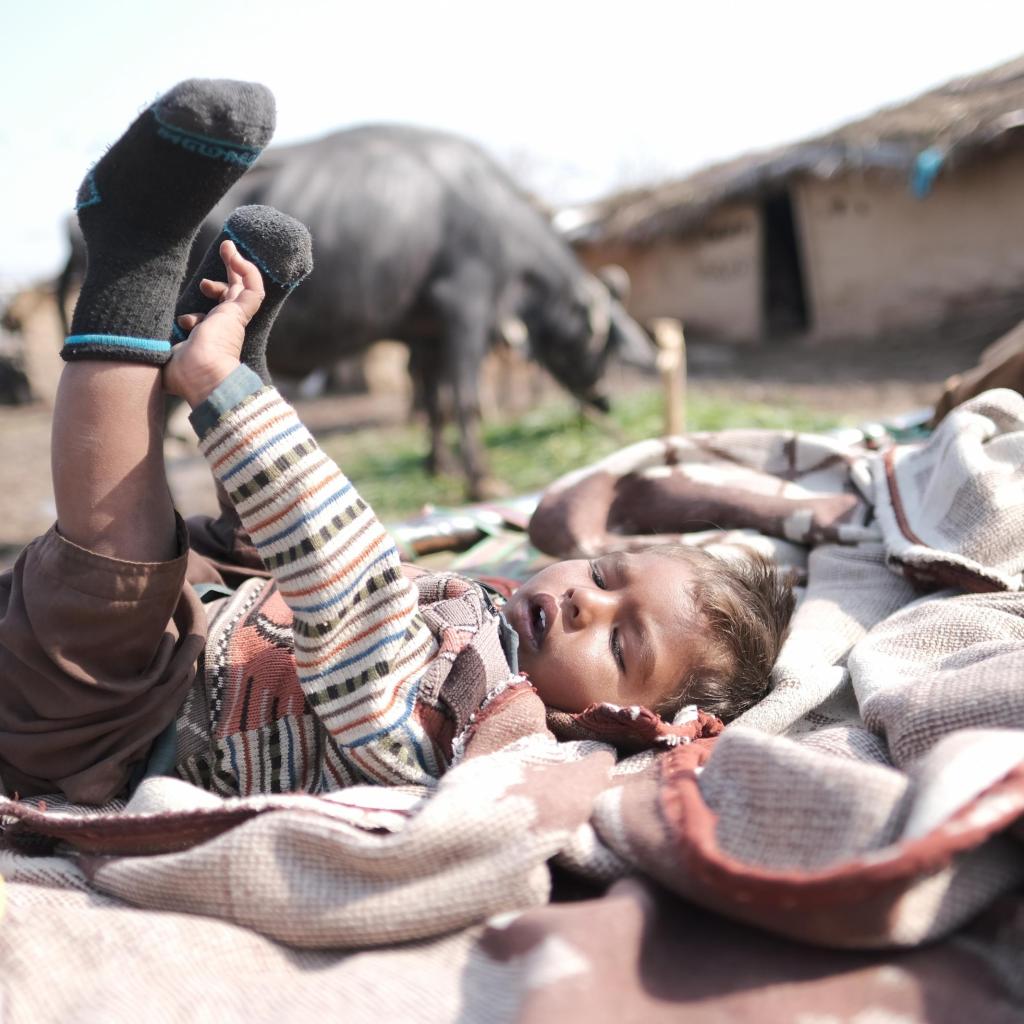Op de foto staat Mohsin, een 1-jarig jongetje met een ontwikkelingsachterstand. Shahryar maakte deze foto tijdens zijn (vrijwilligers)werk in Pakistan. Enkele weken per jaar reist hij naar Pakistan om daar kinderen te helpen die medische zorg nodig hebben. Om dit werk te kunnen doen en zoveel mogelijk kinderen te helpen, heeft hij samen met zijn echtgenote de AMAYA initiative opgericht. Deze stichting heeft als focus het terugdringen van kindersterfte in Pakistan. Wat hem betreft is het volkomen logisch dat hij dit vrijwilligerswerk doet. “Het is goed om je kennis en kwaliteiten in te zetten voor anderen. Ik geloof dat dit een positief effect heeft op de wereld waar wij allemaal onderdeel van uitmaken.”
Bijschrift bij de foto:
Genetics counselling in the urban slums of Pakistan
Shahryar E Mir, Anum Zahra; the AMAYA initiative, Amsterdam, Netherlands (SEM, AZ); and Department of Paediatrics, Dijklander Hospital, Hoorn, Netherlands (SEM)
In the middle of the bustle of the city of Islamabad, Pakistan, lies this urban slum. Living at the footsteps of the grand city infrastructure, this little boy with severe developmental delay is still miles away from basic facilities like sanitation and good health care. The burden of genetic disorders, including inherited forms of developmental delay and intellectual disability, is disproportionally high in Pakistan, especially in children from poor families. An important social factor responsible for such genetic disorders is the cultural preference of cousin marriages and partner selection from near or distant blood relatives. Around 65% of all marriages in Pakistan are consanguineous. With only a handful of genetic counselling services available throughout Pakistan, most poor families do not have access to genetic counselling. With our non-profit organisation, the AMAYA initiative, we focus on increasing awareness of genetic disorders and risks of consanguinity among poor communities in Pakistan. This picture was taken by us while we were providing genetic counselling in different urban slums in Islamabad earlier this year. In this picture we see Mohsin, a 1-year-old boy with developmental delay. He could not sit without support or stand and had microcephaly, facial dysmorphic features, and neurological signs of muscle tone problems. His parents were first-degree cousins, and had an older son with similar problems. Instead of seeking guidance and treatment through modern medicine, Mohsin’s parents had turned towards hakeems (alternative healers). Increasing access to health care, including genetic counselling, in such deprived communities will help reduce the burden of genetic disorders.
